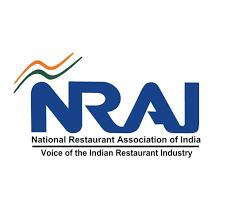The restaurant industry is a significant contributor to the nation’s overall economy in many ways – from employment to tax revenues, driving consumption, promoting tourism, to being a buyer of goods and services from several other industries and sectors which are dependent on and are positively impacted by it.
Apart from contributing significantly to the direct and indirect tax revenues, the restaurant industry is also one of the highest employment creators in India, currently employing over 8.50 million Indians directly in the sector. With an annual turnover of approximately INR 5.69 lakh crores, the Restaurant Industry, is the third largest after retail and insurance in the services segment.
According to the NRAI India Food Services Report 2024, the industry is expected to reach ₹7, 76,511 crore and grow at an 8.1% CAGR by 2028, making it the third-largest food services market globally. The industry, which now accounts for 1.9% of India’s GDP and employs 8.5 million people, is predicted to produce more than 10.3 million jobs by 2028. Despite its vibrant growth trajectory, the sector faces several challenges, including Rising Input Costs, Denial of Input Tax Credit, Complex Regulatory Compliances, Delivery Dynamics and Limited Operating Hours.
NRAI, being the Voice of the Restaurant Industry, therefore firmly feels that the industry’s true growth potential can be unleashed through urgent assistance / stimulus provided by the government. NRAI is confident that not only will this boost the overall size of the sector but it will also generate a tremendous amount of employment opportunities in India.
In light of the above, the NRAI humbly seeks the attention of the Hon’ble Finance Minister on the following key recommendations, which will be a tremendous help towards the development of the sector:
- Restoration of GST Input Tax Credit: In addition to the existing 5% slab without ITC, a new slab of between 12% and 18% GST with ITC as the Government deems fit, may kindly be introduced for restaurants not located in hotels with room tariff of more than Rs 7,500/-.
- Review of Notification for GST on Commercial Leases through RCM: The notification has caused inflationary pressure on most of the smaller restaurants and MSME business owners who were generally renting from unregistered dealers and cannot be in composition due to section 9(5) requirement of being registered. Since the restaurant sector does not get Input Tax Credit, it is requested to either exclude the entire restaurant industry from the applicability of Notification No 09/2024 dated 08th October 2024, or for a roll back of the notification.
- Reinstating Service Export from India Scheme (SEIS): The discontinued SEIS scheme is recommended to be reinstated with a duty credit of 5% of the forex earned by the restaurant entities.
- Reduction of GST on Bagasse and Other Eco-Friendly Materials: Reduction in GST on bagasse from current 12% (against 5% for plastic) will largely accelerate the usage of eco-friendly packaging solutions.
- Reduction of GST on Commercial Rentals (Revenue Share): The current revenue share commercials liable at 18% GST, are recommended for reduction to 5% GST.
- Targeted Subsidy Schemes & Access to Debt Financing for SME’s: Consider subsidies on essential ingredients, utilities, and waste management to reduce operational costs for struggling restaurants, particularly in smaller towns and cities.
- Grant of Industry Status: Given the size / immense contribution of the food services industry to the country’s economy, it should be accorded an industry status.
- Separate Food Services Ministry/Department: A dedicated ministry /department is requested, which would be able to push for agenda for faster growth of the industry – benefiting all stakeholders.
- Employee Welfare Plan: It is requested to have some innovative welfare plans funded by the central and state Government for the employees in this segment to help during employment and after.
- Equitable & Fair E-Commerce Policy: Balanced policies and regulations are required to enable a level-playing field where platforms can continue to innovate while restaurants, delivery partners and consumers are protected from potentially exploitative practices.
- Rationalisation of Licenses/NOCs: A simplified and standardized licence policy – applicable across the country should essentially cover issues related to Food Safety/hygiene; Environment; Human Safety; Labour and Taxation.
- Longer Operating Hours: Considering the current lifestyle trends/requirements of the citizens at large, the industry be permitted longer/24×7 operating hours across the country.
Sagar Daryani, NRAI President stated, “The food services industry is critical to India’s economy, providing significant revenue to the government, employment, and consumption. Despite its potential, the sector faces challenges which restrict its growth and expansion. To address these challenges, timely support and reforms are required. Balanced and fair policies will not only unlock the industry’s maximum potential but will also ensure long-term growth, benefiting millions of employees, consumers, and businesses while reinforcing its position as a key economic driver.”
He added, “I hope that the Hon’ble Finance Minister will consider our requests favourably for boosting growth of the industry. I believe that our suggestions for a dedicated Ministry/Department for the Restaurant Industry could be a game-changer, and will lead to an exponential growth of the sector.
The NRAI remains optimistic that the Hon’ble Finance Minister will take these recommendations into consideration in order to assist the industry develop holistically, which will improve its contribution to India’s economic growth and employment landscape.


